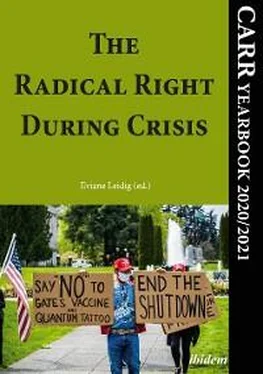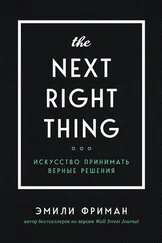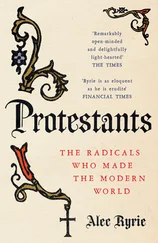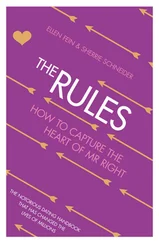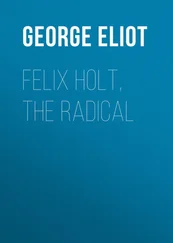2Lucie Szymanowska, “The iImplementation of the Hungarian Citizenship Law,” OSW , February 2, 2011, https://www.osw.waw.pl/en/publikacje/analyses/2011-02-02/implementation-hungarian-citizenship-law.
3Edit Inotai, “Democracy Digest: Hungary’s Curriculum cCusade,” Balkan Insight , February 7, 2020, https://balkaninsight.com/2020/02/07/democracy-digest-hungarys-curriculum-crusade/.
4Csaba Tóth, “President of Hungarian Parliament Orders Removal of EU Flag,” Budapest Beacon , November 17, 2014, https://budapestbeacon.com/president-hungarian-parliament-orders-removal-eu-flag/.
5For example: Stefano Bottoni, “Szeklerland as the New Crimea?,” Visegrad Insight , May 16, 2014, https://visegradinsight.eu/szeklerland-as-a-new-crimea1652014/; Cristian Gherasim, “Bucharest and Budapest in ‘Autonomy’ Region Row,” EU Observer , May 4, 2020, https://euobserver.com/political/148232.
6Akos Keller-Alant, “Living Like in Hungary: Orban Bankrolling Romania ‘Ethnic Parallelism’,” Balkan Insight , January 30, 2020, https://balkaninsight.com/2020/01/30/living-like-in-hungary-orban-bankrolling-romania-ethnic-parallelism/.
7Craig Turp-Balazs, “New Report Reveals Hungary’s Creeping Influence on Transylvania Media Market,” Emerging Europe , July 18, 2019, https://emerging-europe.com/news/new-report-reveals-hungarys-creeping-influence-on-transylvania-media-market/.
8“Hungarian Press Roundup: Romania Declares Trianon Day a National Holiday,” Hungary Today , May 21, 2020, https://hungarytoday.hu/hungarian-press-romania-trianon-day/.
9Gergely Nyilas, “Orbán Szerint Emlékezni Kell, De Trianonozni Nem,” Index , January 9, 2020, https://index.hu/belfold/2020/01/09/orban_viktor_sajtotajekoztato_karmelita_kolostor_orbaninfo/orban_szerint_emlekezni_kell_de_trianonozni_nem/.
10Shaun Walker, “Hungarian Nationalist Rock Opera to Retell 1920s Grievances,” The Guardian , June 22, 2018, https://www.theguardian.com/world/2018/jun/22/hungarian-nationalist-rock-opera-to-retell-1920s-grievances.
11Nick Thorpe, “The 100-year Wound That Hungary Cannot Forget,” BBC News , June 3, 2020, https://www.bbc.com/news/world-europe-52903721.
12Gabriella Dohi, ““Vesszen Trianon!”—így tüntetett a szélsőjobb a száz éve megkötött békeszerződés ellen,” Atlatszo , June 6, 2020, https://video.atlatszo.hu/2020/06/06/vesszen-trianon-igy-tuntetett-a-szelsojobb-a-szaz-eve-megkotott-bekeszerzodes-ellen/.
13“A Betyársereg üzenete: Ennél őszintébben nem lehet… VESSZEN TRIANON!,” Betyársereg , June 4, 2020, http://betyarsereg.hu/a-betyarsereg-uzenete-ennel-oszintebben-nem-lehet-vesszen-trianon/.
14“Trianon100—VIDEÓ,” Légió Hungária, June 4, 2020, https://legiohungaria.org/145-trianon100-video.
An “Ambivalent Day”: How the AfD Attempts to Re-frame the 8th May as Day to Commemorate German Victimhood
Sophie Schmalenberger
What was planned as a full state ceremony to commemorate the 75th anniversary of the end of the Second World War in Europe became a smaller and “lonely” ceremony due to the COVID-19 situation. Keeping a due distance, President Steinmeier and chancellor Merkel came together on 8 May 2020 to lay down a wreath in memory of the victims of war and Nazi tyranny in the heart of a locked-down Berlin. 1In a speech, Steinmeier warned of the ‘temptation of new nationalisms’ and stressed that there was ‘no end to remembering’. 2The AfD, as key mobiliser of such dangerous nationalism, however, used the anniversary to challenge the dominant interpretation of 8 May as marking the liberation from Nazism by coining it as a day that should commemorate German victims. Namely, Nazi supporters as well as bystanders for whom 8 May and its aftermath meant suffering rather than liberation.
This became apparent during the debate on whether 8 May should be made a public holiday in Germany to commemorate the liberation of Europe and Germany from the Nazis as suggested by the chair of the German Auschwitz Committee Esther Bejarano in an open letter 3to Steinmeier and Merkel. The idea quickly gained support and was soon commented on by the honorary chair of the AfD, Alexander Gauland, who claimed that 8 May was no cause for celebration but an ‘ambivalent day’. 4‘A day of liberation for those in the concentration camps, but a day of absolute defeat for Germans, implying the loss of German territories and possibilities’. Gauland’s statement sparked criticism from the Central Council of Jews in Germany and various politicians. 5Nevertheless, he successfully managed to make a narrative of German victimhood a salient part of the discourse surrounding the 2020 Second World War commemorations, thus challenging the dominant narrative of historical guilt as a corner stone of modern Germany’s self-conception.
A milestone for the modern German perspective on World War Two is the speech by former President Richard von Weizsäcker on 8 May 1985 in the Bundestag. Weizsäcker claimed that German´s had ‘not been defeated but liberated by the Allies from the inhuman system of Nazi tyranny’. 6While this statement is historically wrong, it became the dominant framing of 8 May 1945 in German memory culture: while hardly experienced as liberating by Germans at the time, in hindsight it gave Germany the opportunity to become better version of itself. Namely, through coming to terms with its dark past, embracing “Never again!” as a central “lesson learned” 7from it, and adopting the identity of a reformed perpetrator. This, however, did not strictly exclude elements of German victimhood or innocence. The liberation narrative invites to attribute historical guilt to the Führer Adolf Hitler and leading Nazis while negating or minimizing the individual guilt of the “average German” and particularly of one’s family members. 8Narratives of innocence and victimhood 9have thus not been the sole focus of, but present within post-Holocaust German memory culture, as is, for example, apparent in the 2013 TV drama Unsere Mütter, unsere Väter (Generation War), a portrayal of Nazi bystanders containing narratives of (passive) guilt, innocence, and moral redemption. 10On occasion of the 75th anniversary of the end of the Second World War, the AfD attempted to make those the key frame for interpreting Germany’s 20th century history.
This becomes even more explicit when examining further AfD statements around the above mentioned debate. Claiming to put forward a balanced account of history, all these contributions indeed aim to highlight German victims and losses connected to 8 May 1945 and urge to remember ‘our mothers and fathers […] who were victims of the biggest crime against humanity in history’. 11In such narrative, a main focus is put on those Germans who were expelled from former Third Reich territory, in what is labelled as the ‘biggest history of expulsion in the history of humankind’. 12This is achieved by showing video material of and stressing family histories of expulsion, 13emphasizing the ‘loss of the homeland of Eastern Germans’ 14and mourning ‘irretrievably lost’ cities like Königsberg (Kaliningrad) and Danzig (Gdansk) as former hubs of German culture and history. 15Also, the victimization of millions of raped women and girls and German prisoners of war with mainly Soviet troops as perpetrators is mentioned. 16Here, the AfD mobilizes elements of deflected guilt, as well as narratives of victimhood and innocence that exist within, but are not articulated prominently in official post-Holocaust German memory and public commemoration.
To defy accusations of right-wing extremism, AfD actors formally acknowledge the victims of the Holocaust and guilt of some Germans. They stress, however, that Germans were not a people of perpetrators as many had not even voted for Hitler. 17Attempting to furthermore normalize their positions, they relate their interpretations of history to statements of recognized post-war politicians such as Theodor Heuss, who referred to 8 May as ‘most questionable and tragic paradox in [German] history’. 18
Читать дальше
